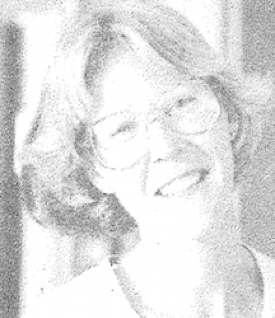On
September 8, 2019, the Quixote Center lost one of its prophetic voices with the
death of Barbara Cullom, who worked at the Center from 1983-1986. Cullom earned
advanced degrees in theology including a Ph.D. at the University of Notre Dame and
an M.Div. at Howard University School of Divinity.

At
the Quixote Center, she worked on what was originally called the Theology
Project and served as a bridge between the work of Priests for Equality and
Catholics Speak Out. In her work, Barbara centered efforts to call out the sin
of sexism and raise up the liberationist goals of feminism within a theological
context. After moving on from the Center, she devoted much of her life to
pastoral ministries and support to patients in hospice care.
One
outstanding part of Cullom’s legacy is the Mary Canon, a liturgical text she co-authored
with Dolly Pomerleau, a co-founder of the Quixote Center, which we include
here:
Mary Canon
By Dolly Pomerleau and Barbara Cullom
We
give you thanks, God of all, for Mary our sister.
We
think of how she might tell us of her son’s life:
“While
I waited with my cousin Elizabeth
I
felt my child move,
felt
him grow and kick and turn in my womb. I said:
This is the body of my body.
This is the blood of my blood.
In
Bethlehem, I held my newborn son,
keeping
him close to me as he slept.
As
I cradled my firstborn in my arms, I said:
This is the body of my body.
This is the blood of my blood.
At
Golgotha, I held my dead son,
feeling
his brokenness and my own.
As
I cradled his corpse in my arms, I cried:
This is the body of my body.
This is the blood of my blood.
On
Olivet, I held my risen son,
thrilled
that he had triumphed over death.
As
I held him in my arms, my heart rejoiced:
This is the body of my body.
This is the blood of my blood.”
In
closing, we quote Barbara’s own words from a piece she wrote for a Quixote
Center publication titled Set My People
Free: Liberation Theology in Practice, offering an eschatological vision of
her work within Christianity – a vision that is still being fulfilled – and
that now serves as a fitting way of capturing her memory and the fond memory so
many hold of her:
We
shall someday see the New Jerusalem, a heaven and an earth beautiful as one who
is to be married, a place where there are no more tears. We shall see it, just
as one day there were women and men who bore, touched, loved and struggled with
Emmanu-el. I do not know when that
day will come. But I do know that even now, women and women-children can sing
in their souls: “I found God in myself, and I loved her, I loved her
FIERCELY!!”

